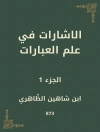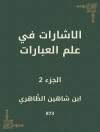Research doesn’t exist in a bubble but co-exists with a multitude of other tasks and commitments, yet there is more need for people to save time than ever before.
Brilliantly attuned to the demands placed on researchers, this book considers how students, academics and professionals alike can save time and stress without compromising the quality of their research or its outcomes. This third edition:
— is fully revised with new chapters on research and evaluation ethics, creative methods of collecting data and how research can make a positive difference;
— includes illustrative case studies throughout the book, and each chapter concludes with exercises, discussion questions and a debate topic;
— is accompanied by a fully updated companion website.
This supportive book is designed for any student or practitioner who wants to know how to do research on top of their main job, and still have a life.
Содержание
1. Introduction
Chapter summary
Introduction
Being a researcher
Why do practitioners do research?
Insider and outsider research
Doing research or evaluation
Managing and commissioning research or evaluation
Terminology
Structure of this book
Case studies
Exercise
Discussion questions
Debate topic
2. Overview of research
Chapter summary
Introduction
Quantitative or qualitative?
Solo or collaborative?
Highly time-consuming methods
Conclusion
Case studies
Exercises
Discussion questions
Debate topic
3. Research and evaluation ethics
Chapter summary
Introduction
Research ethics management
Ethics through the research process
Researcher wellbeing
Conclusion
Case studies
Exercises
Discussion questions
Debate topic
4. Methodologies, approaches and theories
Chapter summary
Introduction
Methodologies, methods and approaches
Positivist methodology
Realist methodologies
Constructionist methodologies
Interpretivist methodologies
Transformative methodologies
Ontology and epistemology
Action research
Evaluation research
Mixed methods research
Arts-based research
Digitally mediated research
The role of theory in research and evaluation
Theory, research, practice
Conclusion
Case studies
Exercises
Discussion questions
Debate topic
5. Topics and proposals
Chapter summary
Introduction
Choosing a research or evaluation topic
Refining your topic
From question to data
How much data?
Qualitative or quantitative methods?
Sampling techniques
Probability samples
Non-probability sampling
What is evidence?
Writing a proposal
Research funders
Conclusion
Case studies
Exercises
Discussion questions
Debate topic
6. Managing your research or evaluation project
Chapter summary
Introduction
Planning
Organisation
Time management
Support from employers
Creative time management
Reward yourself
Look after yourself
Conclusion
Case studies
Exercises
Discussion questions
Debate topic
7. Background research
Chapter summary
Introduction
Document review or literature review?
Record-keeping
Critical and strategic reading
Finding academic journal articles
How to conduct a document review
How to conduct a literature review
Using libraries
Making notes
Knowing when to stop
Conclusion
Case studies
Exercises
Discussion questions
Debate topic
8. Secondary data
Chapter summary
Introduction
Online secondary data sources
Open data
Application programming interfaces
Large-scale surveys
Working with secondary data
Conclusion
Case studies
Exercises
Discussion questions
Debate topic
9. Primary data collection: conventional methods
Chapter summary
Introduction
Collecting quantitative data
Collecting qualitative data
Conclusion
Case studies
Exercises
Discussion questions
Debate topic
10. Primary data collection: creative methods
Chapter summary
Introduction
Collecting data online
Smartphones
Enhanced interviews and focus groups
Diaries, field notes, journals and logs
Visual data
Mapping
Mobile methods
Case studies
Collaborative methods
Conclusion
Case studies
Exercises
Discussion questions
Debate topic
11. Quantitative data analysis
Chapter summary
Introduction
Preparing quantitative data
Coding quantitative data
Quantitative data analysis
Descriptive statistics
Inferential statistics
Conclusion
Case studies
Exercises
Discussion questions
Debate topic
12. Qualitative data analysis
Chapter summary
Introduction
Preparing qualitative data
Coding qualitative data
Qualitative data analysis
A real-life example of qualitative data analysis
Data synthesis
Conclusion
Case studies
Exercises
Discussion questions
Debate topic
13. Writing for research and evaluation
Chapter summary
Introduction
Myths about writing
The writing process
Structure
Plagiarism
Citation
Findings versus recommendations
Editing
Polishing your writing
Conclusion
Case studies
Exercises
Discussion questions
Debate topic
14. Disseminating research and evaluation
Chapter summary
Introduction
Summarising research or evaluation
Barriers to disseminating research and evaluation
Presenting findings in person
Sharing findings online
Data visualisation
Dissemination methods
Disseminating workplace research
Disseminating academic research
Dissemination ethics
Conclusion
Case studies
Exercises
Discussion questions
Debate topic
15. How can research create positive change?
Chapter summary
Introduction
Research impact
Research into policy
Implementation
Knowledge exchange
A holistic approach
Conclusion
Case studies
Exercises
Discussion questions
Debate topic
16. Conclusion
Об авторе
Helen Kara is a leading independent researcher, author, teacher and speaker specialising in research methods, particularly creative methods, and research ethics. With over twenty years’ experience as an independent researcher Helen now teaches doctoral students and staff at higher education institutions worldwide. She is a prolific academic author with over 25 titles and 1000 citations; notably Creative Research Methods: A Practical Guide and Research and Evaluation for Busy Students and Practitioners, both in their second editions. Besides her regular blogs and videos, she also writes comics and fiction. Helen is an Honorary Senior Research Fellow at the University of Manchester, and a Fellow of the Academy of Social Sciences. In 2021, at the age of 56, she was diagnosed autistic. Her neurodivergence explains her lifelong fascination with, and ability to focus on, words, language and writing.












